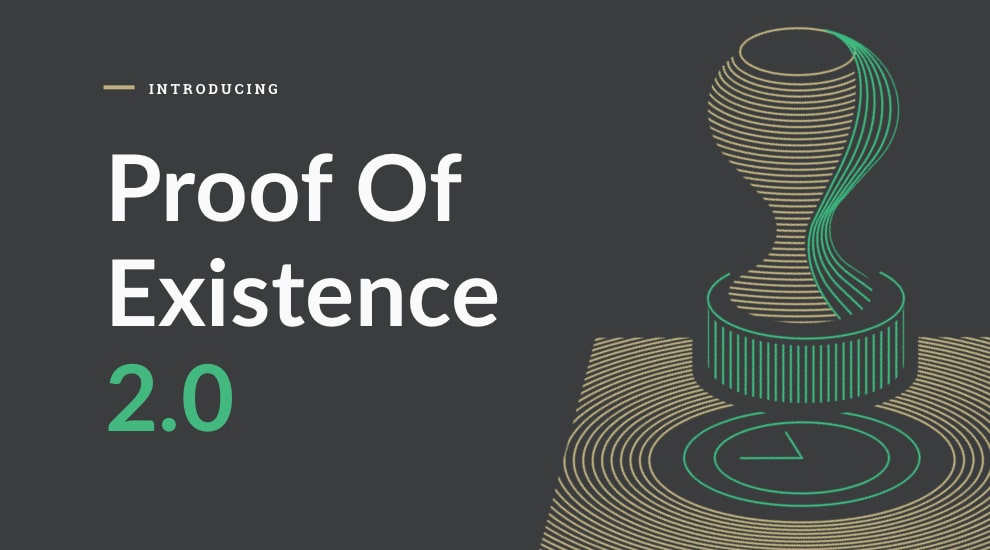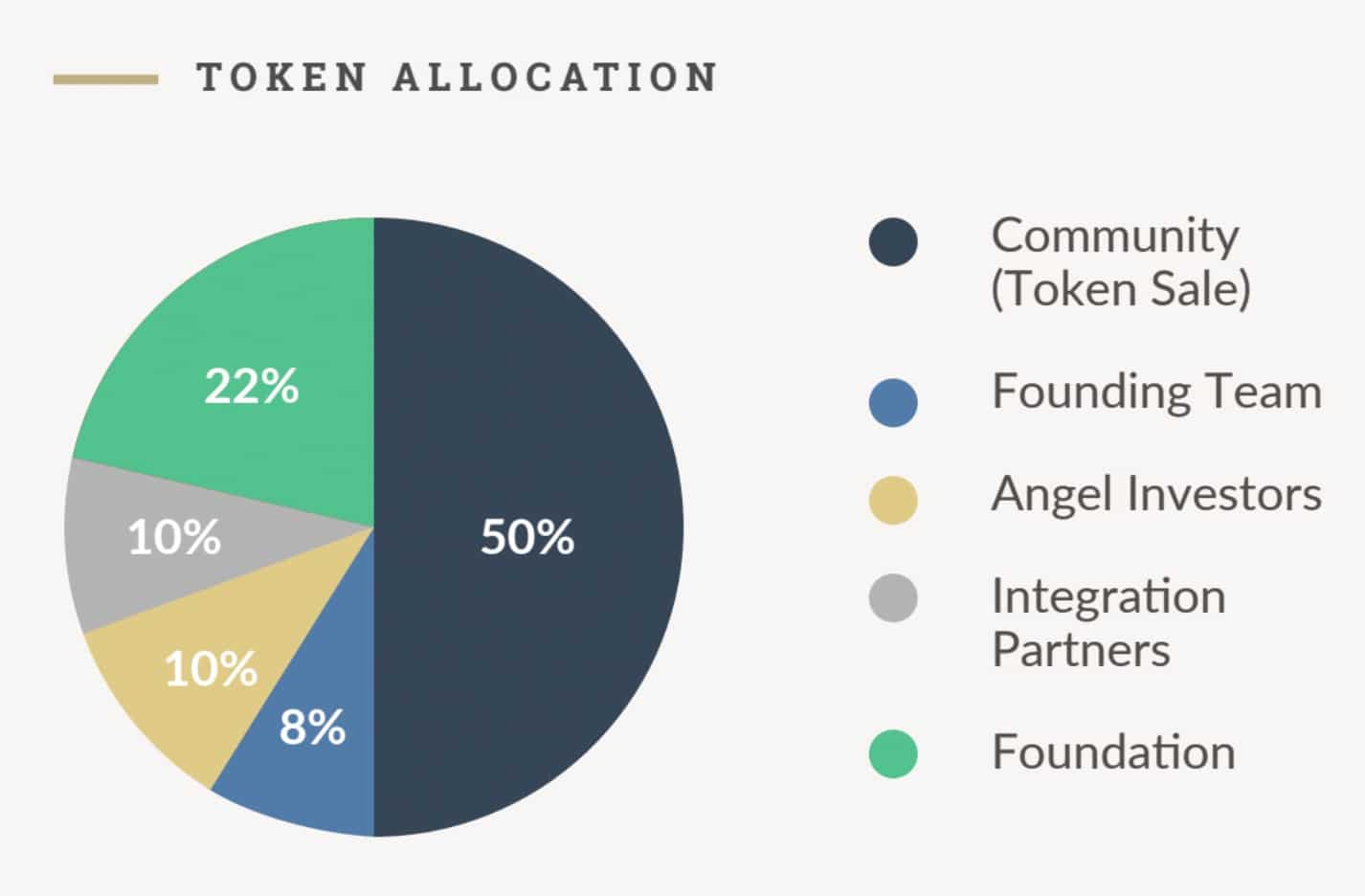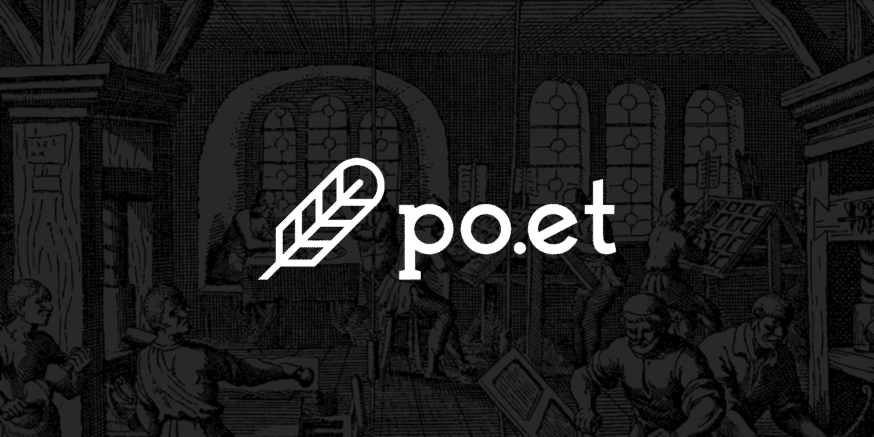What Is Po.et?
Po.et is an Ethereum-based, universal ledger designed to track ownership and attribution for the world’s digital creative assets.
In today’s age of instant information exchange, licensing processes and accreditation have become a huge pain point for digital content creators. In a simple click, anyone can copy your picture or paragraph and repost it as their own. If they do seek proper licensing, it can be a highly labor-intensive task, requiring multiple emails and lawyers. Often it ends up that this process is simply not worth it for an article that took a journalist just a couple of hours to write.
Po.et has made it their mission to address this problem by creating the first platform that uses the blockchain to digitally timestamp content and serve as a single source for licensing information.
In this guide, we will cover the following:
- How Does It Work?
- POE Token
- Po.et Team
- Roadmap
- Trading
- Where to Buy POE
- Where to Store POE
- Conclusion
- Additional Resources
How Does It Work?
A Unique “Fingerprint”

Po.et uses “Proof of Existence”, the first non-financial application of the blockchain. When you add something to the Po.et marketplace, it gets its own unique “fingerprint.” Once assigned, this fingerprint is unalterable. Thanks to the blockchain, the “fingerprint” has no single point of failure and the content needs no third party or publisher to gain access.
A Digital Marketplace
In addition to offering an immutable certificate of ownership, Po.et also aims to be a platform for creators to be discovered. You can add your digital content to different marketplaces so it is featured and properly licensed. The marketplaces use Po.et’s token, POE, to uniquely incentivize members to add and fairly rate relevant content.
To add content to a marketplace, you must first stake your coins. If the members of the marketplace believe the content fits, they’ll accept it. Otherwise, they reject it and confiscate your coins.
As a member on the Po.et platform, you can create your own marketplace and make it as broad (ie. photography, poems, memes) or specific as you choose (ie. pictures of walruses in birthday hats, songs about climbing rocks in Colorado, etc.). Then, you can specify the voting terms, requirements, and amount of POE new contributors need to stake to apply to join. The more quality content in a marketplace, the more valuable the marketplace becomes. Consequently, this incentivizes members to only accept quality, relevant submissions and reject the unfitting ones.
The Po.et staking process should incentivize you to only submit relevant content as you’ll lose your coins if not. So, don’t submit pictures of “dogs in sun hats” to “walruses with birthday hats” – the community won’t accept it.
Additionally, on Po.et you can “challenge” any submission if you believe it contains plagiarised content. Using the unique fingerprints assigned to each document, members can vote to accept or reject the challenge. If the majority of members approve the challenge, the new content is removed from the marketplace.
Open API
Po.et is also developing an open API for publishers, called Frost, which will allow integration with other platforms and apps. Using Frost will mean that publishers can easily access the Po.et functionality via other apps without dealing with private key infrastructure each time.
Competition and Differentiation
There are other blockchain projects targeting the content and copyright use cases, including examples such as Publica (books), KodakOne or Binded (imagery), and Animecoin (anime). However, Po.et has a couple of key differentiators; offering users the ability to create marketplaces and the staking mechanism. Po.et also has broader scope across multiple content formats.
POE Token
POE is the ERC20 currency used on the Po.et marketplace. At the time of launch, it’s three main uses, as described by the Po.et team are to:
- Bootstrap the network effects of Po.et, thereby creating a community of engaged invested stakeholders and publishers
- Raise funds for the long-term development of the Po.et Foundation, and;
- Provide a mechanism to incentivize and reward early adopters and positive contributions to the Po.et network
As the network matures, the founders hope that POE can serve as the economic incentive behind Po.et’s need to promote quality, curated content on their trustless platform.
The team minted a total of 3,141,592,653 (the digits of pi!) POE during the ICO in August 2017. Subsequently, the team sold 50% to the community through the token sale event, raising a total of $10 million USD. Then the remaining token allocations were as follows:
- 8% Founding Team
- 10% Angel Investors
- 10% Integration Partners
- 22% Foundation
- 50% Token Sale

Po.et Team
Po.et is an offshoot of BTC Media, a publishing and marketing firm that focuses on the blockchain space. BTC Media co-founder, Tyler Evans, was frustrated with the labor-intensive process associated with licensing content and attributed it largely to “not having a single source of truth about licensing information.”
The Po.et team comprises 16 core members, including CEO Jarrod Dicker, who is a former president of innovation and commercial strategy at The Washington Post.
Roadmap
The development of Po.et is separated into phases.
The Rosetta Era
The Rosetta Era began in June 2017. Most notably during this time, Po.et released their ICO and raised $10 million dollars from the token sale. Using these funds and their seed round, Po.et was able to launch their public test net and integrate their first publishers onto the platform. WordPress users were officially able to timestamp and keep an updated log of all of their written work.
The Gutenberg Era
Po.et has officially entered the “Guttenberg Era” which is split into two distinct phases. According to their roadmap, Po.et is currently working on phase one, which includes aspects of their mainnet such as workflow automation and private security reviews.
Phase two involves activation of the mainnet hashing, user onboarding, and public security reviews, among others. Phase two will also see the release of the source code for the Frost open API so that outside developers can start to work on integrations.
Po.et hasn’t yet provided a date for the mainnet launch, although the blog provides detailed monthly progress updates so you can follow along.
[thrive_leads id=’5219′]
Trading
Launched in August 2017, POE is still a relatively new token. While it suffered major blows in the overall crypto market pullback of early 2018, the team has remained focused on their product and roadmap.
The value of POE saw a brief hike in late April, which is most likely linked to the fact that Po.et released its WordPress plugin around that time. The price fell again by the end of June and has been fairly stable ever since.
Given that the next big milestone is the launch of the mainnet, then it could be that the price hikes again once the team announces a date, or when the mainnet itself goes live.
Where to Buy POE
Today, Po.et POE tokens can be purchased on a number of popular exchanges including Binance, Bittrex, OKex, and EtherDelta.
Where to Store POE
Because POE is an ERC20 token, you need to store it in a wallet with ERC20 support. The recommended option is a hardware wallet like the Ledger Nano S.
If you don’t want to shell out the cash for a hardware wallet, you can use Exodus wallet for free.
Conclusion
Po.et is a shared, universal ledger designed to track ownership and attribution for the world’s digital creative assets. While the project is still very young, they’ve already made a splash in the blockchain ecosystem. As a result of a series of positive key hires and a well-thought-out, and so far, well-executed roadmap, this team looks poised to take Po.et far. If the team succeeds, they aim to bring the media and publishing industry into tomorrow’s Internet of Value.
Additional Resources
Find Po.et on:
Editor’s Note: This article was updated by Sarah Rothrie on November 1, 2018, to reflect the recent changes in the project.







